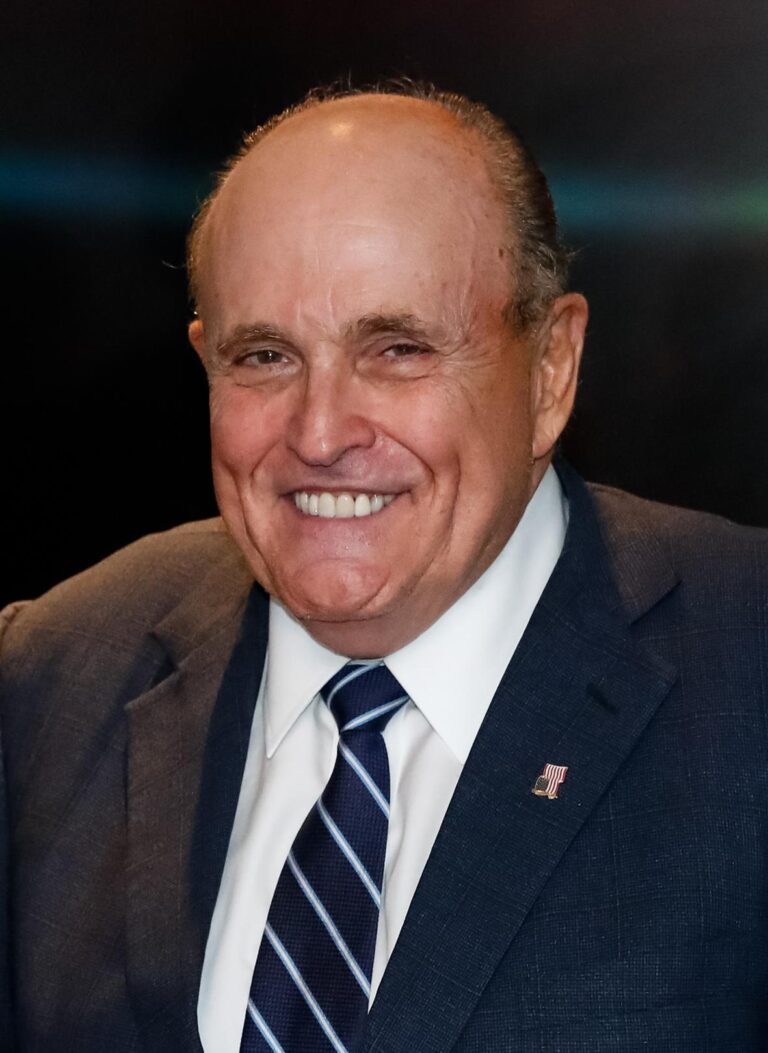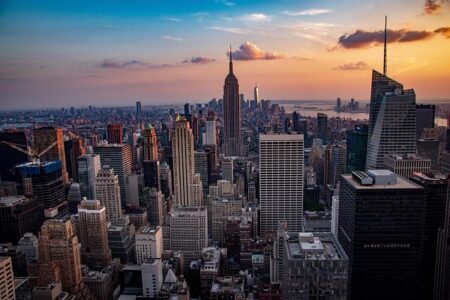Rudy Giuliani, a prominent figure in American politics and law, remains widely recognized for his leadership during one of the nation’s most harrowing moments—the September 11 attacks. As a former mayor of New York City,his crisis management and resilience in the aftermath of 9/11 garnered both national and international attention. This article explores Giuliani’s biography, key facts about his career, and his pivotal role during the September 11 attacks, offering an in-depth look at the man whose tenure was forever shaped by that tragic day.
Early Life and Legal Career Shaping Rudy Giuliani’s Political Path
Rudolph Giuliani’s early years laid a foundational blueprint for his future in public service and politics. Born in Brooklyn, New York, in 1944, Giuliani was raised in a middle-class Italian-American family that emphasized hard work and education. He graduated from Manhattan College before earning his law degree from New York University School of Law. This strong academic background propelled him into the legal world, where he quickly made a name for himself.His prosecutorial career began in the U.S. Attorney’s Office for the Southern District of New York, a position that would become central to his emerging public image.
Throughout the 1980s, Giuliani’s relentless pursuit of organized crime and political corruption highlighted his commitment to law and order. His tenure as U.S. Attorney featured several landmark cases that cemented his reputation as a tough, no-nonsense prosecutor. Key elements that shaped his political appeal include:
- High-profile convictions: Targeting mafia figures and corrupt officials elevated his status.
- Unyielding media presence: Giuliani effectively used press coverage to reinforce his image as a crime-fighting maverick.
- Strategic alliances: Collaborations with federal agencies expanded his influence and professional network.
| Year | Position | Notable Achievement |
|---|---|---|
| 1983 | U.S. Attorney, Southern District of NY | Led mafia trials |
| 1989 | Mayor of New York City (elected next year) | Capitalized on law-and-order platform |
Leadership During the September 11 Attacks and Crisis Management
In the immediate aftermath of the September 11 attacks, Rudy Giuliani’s leadership was marked by decisive action and clear dialog amidst unprecedented chaos. As Mayor of New York City, he quickly coordinated with emergency responders, federal agencies, and city officials to manage the unfolding crisis. Giuliani’s presence at Ground Zero and his commitment to transparent updates helped reassure a frightened public. His ability to remain calm under pressure was widely praised,with many crediting his leadership for maintaining order during one of the city’s darkest hours.
Giuliani’s crisis management approach emphasized:
- Rapid decision-making: Prioritizing immediate rescue and recovery while deploying resources efficiently.
- Unified communication: Serving as a central voice for coordination among diverse agencies.
- Public reassurance: Offering clear, honest updates to maintain trust and prevent panic.
- Long-term recovery planning: Initiating strategies for rebuilding and resilience post-attacks.
| Leadership Quality | Impact During 9/11 |
|---|---|
| Composure | Helped calm citizens and first responders |
| Communication | Provided consistent, clear information |
| Coordination | Streamlined emergency response operations |
| Vision | Focused on both immediate rescue and future recovery |
Controversies and Legal Challenges Impacting Giuliani’s Legacy
Rudy Giuliani’s career, while historically celebrated for his leadership during the September 11 attacks, has been increasingly overshadowed by a series of controversies and legal challenges that have elaborate his public legacy. His role as the personal attorney to former President Donald Trump placed him at the center of contentious political and legal battles, notably regarding efforts to challenge the 2020 presidential election results. These activities led to multiple investigations, including inquiries into his conduct in relation to Ukraine and election-related activities, resulting in significant reputational damage and professional scrutiny.
Among the more pressing legal matters, Giuliani has faced disciplinary actions and lawsuits that question his ethical conduct. The following table summarizes key controversies and legal challenges linked to his recent public life:
| Issue | Date | Status |
|---|---|---|
| Election fraud claims & election interference inquiries | 2020–2021 | Under investigation |
| Disbarment proceedings in New York and DC | 2021–2023 | Suspended |
| Lawsuit related to misinformation on 2020 election | 2022 | Ongoing |
Critics argue that these episodes have markedly altered public perception, depicting a complex portrait of a figure once immortalized as “America’s Mayor.” His legal entanglements highlight the challenges faced by public figures navigating political partisanship, especially when their actions prompt nationwide debates over legality and ethics. As investigations persist, Giuliani’s multifaceted legacy continues to evolve, blending historic accomplishments with high-profile controversies.
Post-Mayoral Career and Influence on Modern American Politics
Following his tenure as mayor, Rudy Giuliani’s career took a dynamic turn, establishing him as a prominent figure in the national political arena. Leveraging his reputation as “America’s Mayor” post-9/11,Giuliani transitioned into a role as a high-profile political consultant and advisor,engaging with a variety of Republican campaigns and policy initiatives. His influence was particularly noticeable during the 2008 and 2016 presidential election cycles, where he served as an informal advisor and surrogate, shaping political discourse around security, law enforcement, and leadership. Giuliani’s post-mayoral years were marked by a polarizing presence, as he became a vocal advocate for conservative policies and took on roles that often placed him at the center of intense political controversies.
- Legal career resurgence: Giuliani reinvigorated his law practice, focusing on crisis management and cybersecurity, areas that echoed his New York City leadership.
- Political activism: He played a significant role as an outspoken supporter of Donald Trump,impacting the political landscape through media appearances and strategic campaign efforts.
- Public perception shifts: While once widely praised for his crisis leadership, his later political activities led to mixed public responses, reflecting broader divisions in contemporary American politics.
| Year | Role | Impact |
|---|---|---|
| 2008 | Republican Campaign Advisor | Shaped national debates on security policies |
| 2016 | Trump Campaign Surrogate | Amplified campaign messaging through media presence |
| 2020 | Legal Counsel | Involved in high-profile election-related legal challenges |
Final Thoughts
Rudy Giuliani remains a complex and influential figure in American political history. From his tenure as New York City’s mayor during the September 11 attacks to his ongoing impact on national discourse, his legacy continues to provoke discussion and analysis. As documented by Britannica, understanding Giuliani’s life and actions provides valuable insight into the challenges and resilience demonstrated in times of crisis.




